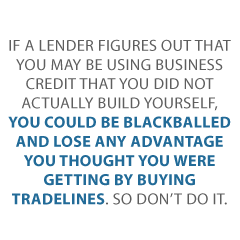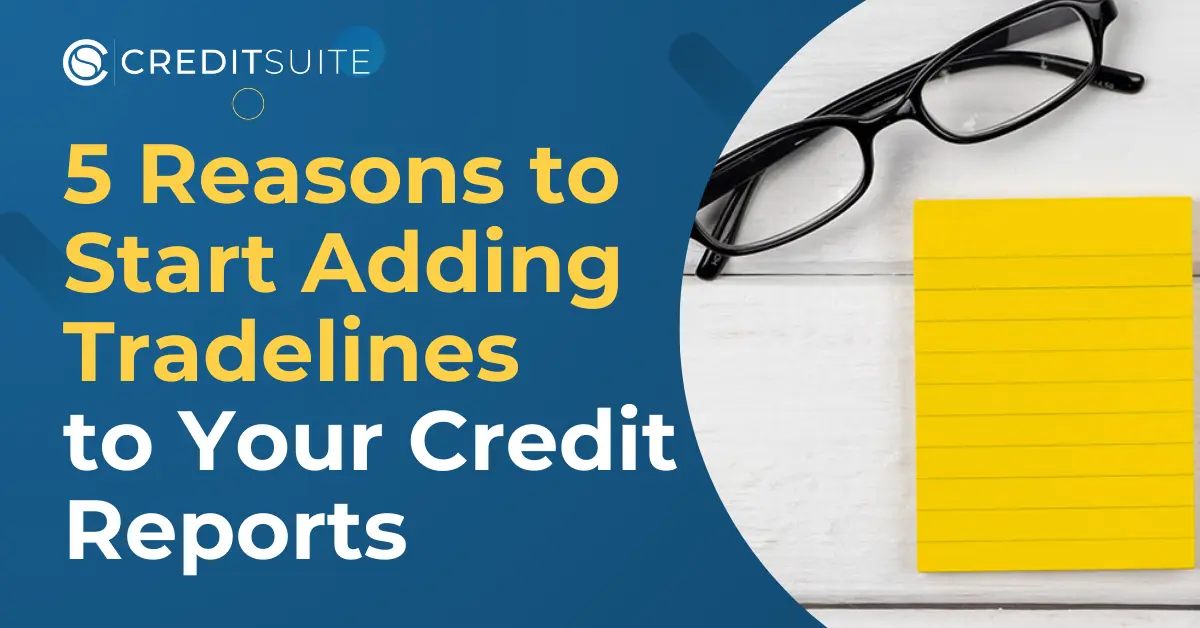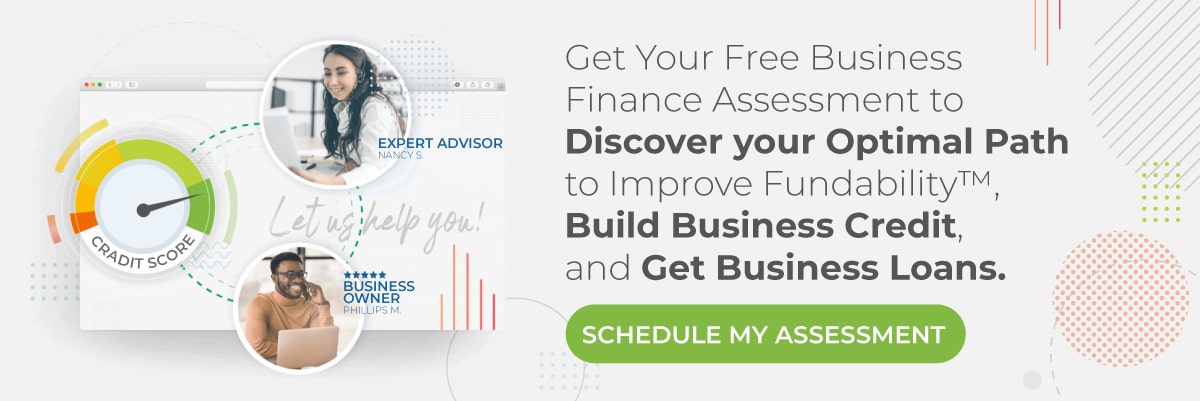Your business credit report needs tradelines. Not just one or two either. The truth is, you need to start adding tradelines to your business credit reports, and here’s why.
Top 5 Reasons for Adding Tradelines to Your Credit Report
Your business credit report reflects the creditworthiness of your business. It is not connected to you personally. As a result it needs to have business tradelines reporting to it. Why?
1. It can help establish a business credit score.
Your business credit is separate from your personal credit. For one, you have to be intentional about building it. Not all vendors will report payments to your business credit report. That means, you need to add tradelines that do. You’ll likely need help with this from a business credit expert, as most vendors do not make publicly known whether they report or not.
2. It establishes a PAYDEX score with D&B.
You need tradelines on your business credit report to establish a PAYDEX with Dun & Bradstreet. They are the largest and most commonly used business credit company. So obviously, having a PAYDEX is important. D&B says you only need two. However, many report that in their experience it took 3 tradelines reporting to establish a PAYDEX.
3. It can help raise your business credit score.
Remember, this only works if you pay on-time. However, if you do, the more the merrier. When you add tradelines to your business credit report, and handle them responsibly, you are only helping your business credit score grow.
4. Adding tradelines to your credit report is a way to build business credit without good credit.
Tradelines break the vicious cycle of “you have to have credit to get credit.” They typically do not take credit into account for approval. Rather, they look at other things to determine credit worthiness like time in business, business revenue, and business bank account balance.
5. Strong business credit is essential to running a strong business and protecting your personal credit.
And as we said, you need tradelines to establish business credit, let alone build it. Business credit allows you to fund your business without jeopardizing your personal credit.
Bonus: Buying Business Tradelines Won’t Help You
Buying tradelines basically involves buying tradelines someone else has been using and putting it on your credit report. While it is not technically illegal, it is definitely frowned upon. If a lender figures out that you may be using business credit that you did not actually build yourself, you could be blackballed and lose any advantage you thought you were getting by buying tradelines. So don’t do it.
Adding tradelines to your business credit report is necessary. It is how you establish business credit in the first place. Then, it’s how you continue to grow it to a point that you can apply for other types of accounts. For example store cards, fleet cards, and business credit cards that can be used anywhere for anything require strong business credit.
A strong business credit score will help you get better terms and rates on business loans and lines of credit as well. This is true even though they will check personal credit also. So, the sooner you work on this the better. Get started now.


